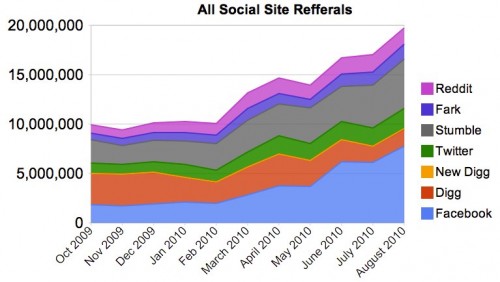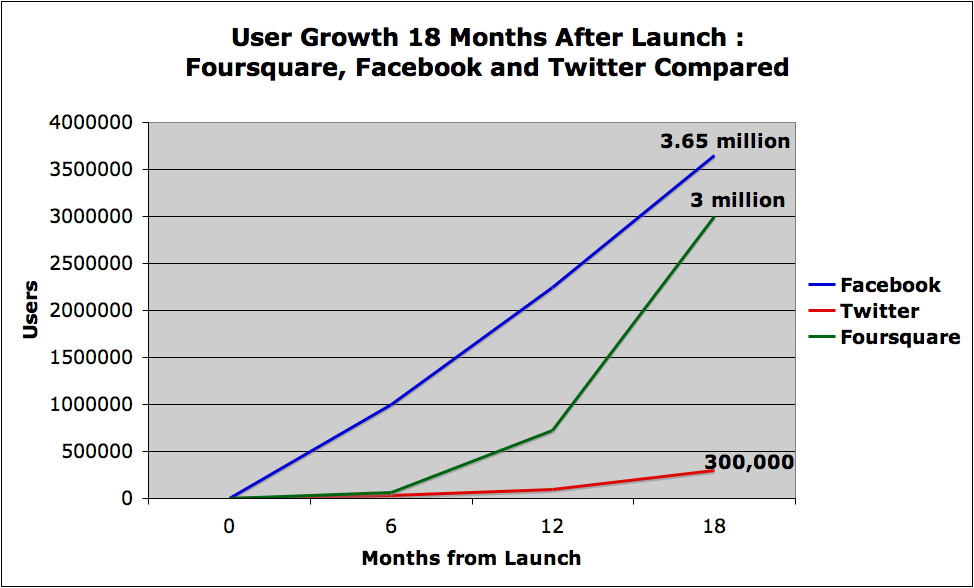We Are Social’s Monday Mashup #39
ASA extension to digital remit
The online remit of the ASA, the UK’s advertising watchdog, will be ‘extended significantly’ to deliver greater consumer protection and cover social media campaigns.
The ASA’s current online remit includes ads in paid-for space and sales promotions wherever they appear, but the new remit will now cover:
- Advertisers‟ own marketing communications on their own websites and;
- Marketing communications in other non-paid-for space under their control, such as social networking sites like Facebook and Twitter.
Though the news was ‘widely welcomed’ last week, there were some unclear areas such as “the perceived ‘grey area’ between what constitutes editorial and marketing copy”. To help marketers better understand the reasons behind and implications of the ASA’s new remit, the IAB has published a list of FAQs on its website, and you can expect a more detailed post from Robin here soon.
Apple launches social network ‘Ping’ as part of iTunes
Steve Jobs and Co. have launched a social network as part of the latest version of their iTunes software. The network called Ping allows iTunes users to build a network of friends and follow musicians in a similar way to that of Twitter. Many believe it will be a direct challenger to existing music-based social networks such as Myspace, Spotify and LastFM.
Ping was due to launch with Facebook integration, allowing new users to find their Facebook friends who were also using Ping. However, Apple refused to agree to Facebook’s “onerous terms” causing Facebook to block Apple’s access to the platform. Apple subsequently disabled the feature completely. If this sounds a little familiar, it’s because a similar thing happened to Twitter back in June, when it released an upgrade to its Facebook application, and had such functionality revoked by Facebook.
Twitter’s Evolving Ecosystem
Last week, Twitter CEO Evan Williams posted a number of interesting stats that highlighted the growth and evolution of Twitter. For instance, the following chart shows the top ten applications people have used to access Twitter in the last 30 days:

It’s worth noting that while web access through Twitter.com still dominates usage, mobile is becoming an increasingly important way for users to connect, as evidenced in the number of mobile apps in the top ten list. In fact:
Total mobile users has jumped 62 percent since mid-April, and, remarkably, 16 percent of all new users to Twitter start on mobile now, as opposed to the five percent before we launched our first Twitter-branded mobile client.
Twitter now boasts over 145 million registered users and around 105 million tweeting upwards of 65 million times a day.
Social traffic more important than search traffic

The marketing team behind Gawker Media have published a series of stats that illustrates the blog network’s traffic from social media sites. It’s should come as no surprise that referrals from social media, for the most part, have risen over the last year and that Facebook is way ahead of the competition. The vast implementation of the Facebook Open Graph has no doubt sped up this process. What’s more striking, however, is the decline of Digg according to Peter Kafka:
Less than a year ago, Digg was the single most important social site for Gawker, Gizmodo, Jalopnik et al. Now it has been eclipsed by the likes of Facebook, Twitter and, a little surprisingly, StumbleUpon.
The main takeway? “Social traffic is becoming as important, or more so, than search traffic from the likes of Google and Yahoo”.
Check-in bonanza? It could be just around the corner
Despite geo-location being on the minds of many marketers over the past few months, a new study from Forrester Research suggests that only a small segment of users are actually interested in the ‘fad’:
Only urbanite techies and marginally employed twenty-somethings are interested. Just 4% of Americans have tried location-based services, and only 1% on a regular basis. And apparently it’s only for the kids, as 70% of those who tried it were between 19 and 35.
Brian Skepys is quick to point out however, that Foursquare is proving to be just as popular as Facebook – and even more popular that Twitter – when it was first launched.

Three-quarters of Marketers plan to increase investment in social media in the next 12 months
According to a June 2010 survey by King Fish Media, HubSpot and Junta42, 75% of companies planned to increase their social media budgets in the coming year. The research surveyed 457 US marketers and managers, which also found that 72% of US companies already had a social media strategy in place. Both findings suggest that a more mature approach to social media from marketers, and a movement from one-off social media ‘experiments’.
Sales still an important factor behind brand social media efforts
Research from social media monitoring service Alterian reveals that ‘new customer acquisition’ was the number one objective behind setting up a social media strategy (30%), followed by ‘driving brand awareness’ (26.5%) and ‘retaining existing customers (24%). ‘Customer service,’ unfortunately, was considered the main social media objective by only 1.2% of the marketers surveyed.
The King gives in to the Green lobby… and wins back his crown
It happened a few months ago with Kit Kat. Then Greenpeace did it again, this time with Burger King. A few months ago the environmental organization launched an intense social media campaign against one of Sinar Mas (pulp-paper-and-palm-oil conglomerate) highest profile customers: Burger King. It encouraged fans of its Facebook page to voice their discontent on the Burger King Facebook page. It took one month of pressure but Burger King has just announced that they’re dropping the palm-oil producer. The fans are delighted and Greenpeace even saluted Burger King’s actions by encouraging fans to say thanks.
The Guardian launches science blogs network
The Guardian is launching a new science blog network, aimed at getting readers to discuss ‘science’ in all its forms, “from palaeontology to extraterrestrial life”.
The science network will comprise of four regular bloggers sharing their expertise on the latest in evolution and ecology, politics and campaigns, skepticism and particle physics. A fifth blog will act as a window into other discussions going on in the science world and will also host the Guardian’s first science blog festival.
The Guardian had already adopted a similar strategy for their Law Network.
Track the Coca-Cola fairy in Sydney
Our friends down under will be pleased to know that Coca-Cola is organizing a Foursquare treasure-hunt just for them called the Coke Machine Fairy. The Coke Fairy won’t turn your pumpkin into a coach but help you win prizes like gift certificates and concert tickets. So how does it work? Well, the fairy will be checking on Foursquare in at specific Coke machines in and around Sydney. The first users to find that machine after a check-in, to push the magic button to retrieve the magic bottle and shout about it on Foursquare will see the Fairy magically appear in front of their eyes, arms loaded with gifts! You can friend the fairy on Foursquare and Twitter but be warned that the fairy only officiates in Australia.